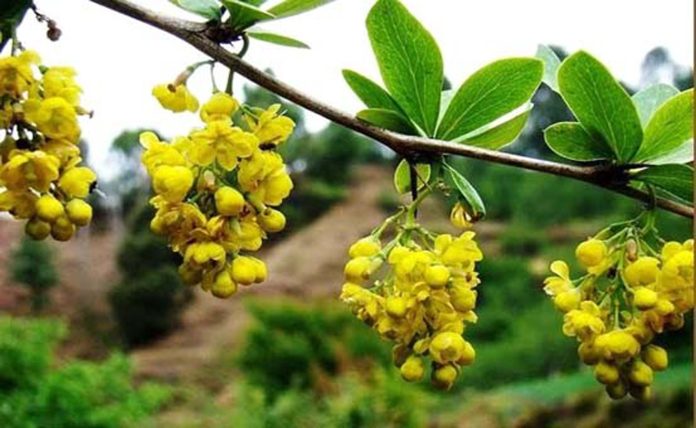Dr Navya Verma
Cancer is one of the most dreaded diseases of the 21th century and spreading further with continuance and increasing incidence. It is the third leading cause of death worldwide. It is a generic term for a group of more than 100 diseases that can affect any part of the body. Chemotherapy is one of the methods of treating cancer. However, the chemotherapeutic drugs are highly toxic and have devastating side effects. Over 60% of anticancer drugs available in the market are of natural origin. Therefore, the phytochemicals present in several herbal products and plants may have the potential to act as preventive or therapeutic agents against various human cancers. Medicinal plants have been in use since time immemorial and their utility has been increasing day by day. Naturally obtained compounds are considered safer and more easily biodegradable than synthetic compounds.
Ayurveda defines cancer as a chronic imbalance of Tridosha (pathophysiological entities), Dhatus (tissue), and Triguna (mental qualities). Popular herbs like Ashwagandha, Amla, Giloy, Haridra, Daruharidra etc. help to retard the process of cancer by targeting the specific tissue to improve the quality of patient’s life.
DARUHARIDRA
Daruharidra (Berberis aristata), commonly known as “Indian Barberry” or “Daru-haldi”, is a significant medicinal plant widely used in traditional Ayurvedic medicine. Renowned for its diverse pharmacological activities, Daruharidra is valued for its anti-inflammatory, antimicrobialactivity,hepatoprotective, anticancer, antidiabetic, and immunomodulatory properties. The bioactive compound “Berberine”, a potent isoquinoline alkaloid, is primarily responsible for its therapeutic effects. Traditionally, Daruharidra has been employed in managing conditions like diabetes, jaundice, eye infections [like trachomas], leishmaniasis (parasitic disease)and skin disorders, aligning with its role as a natural antioxidant and detoxifier.
ROLE IN CANCER
* The methanolic extract of B. aristata plant was studied against human colon cancer cell line to evaluate anti-cancerous activity. It was found that methanolic extract of B. aristata showed concentration dependent inhibition of HT29 cells. Also, Berberine constituent was found to show significant inhibition against carcinogenesis induced by 20-methylcholanthrene or N-nitrosodiethylamine.
* Berberine also interferes with transcription factor-1 (AP-1) activity responsible for the expression of oncogenes and neoplastic transformation of the cell.
* It also leads to the inhibition of various enzymes which are directly or indirectly involved in carcinogenesis like N-acetyl transferase, Cyclo-oxygenase-2, Telomerase and Topoisomerase.
* In addition to these actions, Berberine plays a role in, the regulation of reactive oxygen species and inflammatory cytokines in preventing cancer formation.
* A study was performed to evaluate the synergetic anticancer activity of Berberine and Curcumin by estimating the inhibition of the cell proliferation by cytotoxicity assay using MTT method on specified human cell lines.
* Anticancer Activity on A549 Cells [Lung cancer cell lines]- Pure Berberine and Curcumin were found to have inhibition[of cell proliferation]activity of 64%and 60%respectively, and combination of Berberine and Curcumin in 1 : 1 ratio was found to bring about 99% inhibition.
* Anticancer Activity on Hep-G2 Cells [Liver cancer cell lines]- Inhibitory activity of 85%.
* Anticancer Activity on MCF-7 Cells[Breast cancer cell lines]-Inhibitory activity of 87%.
* Anticancer Activity on Jurkat Cells[Leukemia]- Inhibitory activity of 85%. Berberinehas been shown to induce apoptosis by topoisomerase II inhibition,stimulate caspase activation, and also exhibit antiproliferative, cytotoxic, and proapoptotic activities in leukemia, which lack p53 expression. Studies have also proved berberine to demonstrate anticancer activities against leukemic cells – HL-60 and WEHI-3.
* Anticancer Activity on K562 Cells [Bone cancer cells]-inhibitory activity of 23%
OTHER THERAPEUTIC USES OF DARUHARIDRA
* Hepatoprotective activity: Daruharidra has been described by various Acharyas for Kamala (Jaundice). It has tikta rasa, katu vipaka, ruksha guna, ushna virya and lekhana karma which plays a major role in bahupittakamala (Hepatitis).
* In an immunomodulation study, it was observed that the formulation containing B. aristata decreases the rate of infection in hepatic amoebiasis.
* The aqueous methanolic extract of the plant possesses hepatoprotective action.
* Hepatobiliary excretion and liver metabolism are regulated by cytochrome p-glycoprotein and P-450.
* Berberine is found to be effective against liver fibrosis.
* It helps in free radical scavenging, decreases oxidative and nitrosative stress, and reduces the inflammatory response in the liver.
* It increases the expression of low-density lipoprotein receptors (LDLR) and regulates lipid metabolism.
Antioxidant: The aqueous ethanolic extract shows the antioxidant activity. It was found that the root extract of the plant showed decrease oxidative stress.
Anti-inflammatory: The aqueous extract of roots of possesses anti-inflammatory action when tested in rats at dosage 500-1000 mg/kg.
Anti-diabetic: The ethanolic extract of B. aristata showed anti-diabetic activity when experimented within allox an induced diabetic rats. The alcoholic stem extract of daruharidra possesses anti- hyperglycemic activity. DPP-IV inhibiting property of the plant showed potential anti-diabetic agent.
As we know that cancer is an incurable ailment, thus formulating the correct treatment is really difficult. Allopathy treats cancer with the help of radiotherapy, chemotherapy, and surgery in the first place. But unfortunately, all these treatments include a long list of unpleasant side effects. And these side effects are worse than the sickness itself.On the contrary, ayurvedic science attempts to strengthen the immune system of the patients which helps the patients to fight with the disease as well as the side-effects.
Daruharidra definitely has a positive effect in the disease. Daruharidra has numerous therapeutic effects. It shows antioxidative, antiinflammatory, anti-cancer, hepatoprotective, and immunomodulatory activities, according to clinical andexperimental investigations
With a unique method of treatment, cancer patients can have benefit from ayurvedic treatment by getting rid of the toxins and free radicals in the body. Ayurvedic drugs boosts immunity, eventually killing cancer cells and thus restores the functions of various organs in the body.
(The author is intern BAMS GAMC&H Akhnoor)
Trending Now
E-Paper


